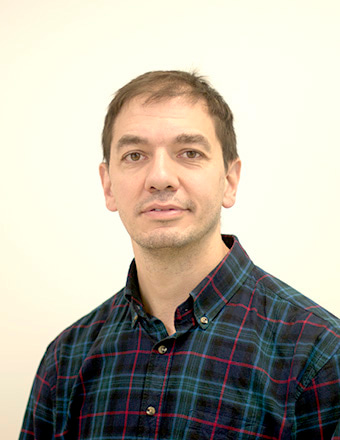Biotech startup: Óscar Millet, ATLAS Molecular Pharma

ATLAS Molecular Pharma is a spin-off company from CIC bioGUNE, created in 2015 and located in the Basque Country (Spain). ATLAS developed a singular platform for the discovery of pharmacological chaperones, for the treatment of rare and ultrarare diseases. Based on this strategy, ATLAS is currently developing drugs for congenital erythropoietic porphyria (lead project, entering phase I in 2021), tyrosinemia type I (preclinical stage) and prion disease (preclinical stage). The company employs eight people, including scientific and administrative staff.

https://www.omilletlab.com
What does your company do?
ATLAS Molecular Pharma is a spin-off company dedicated to the discovery and development of chemical entities that act as pharmacological chaperones and that can be used in the treatment of rare and ultrarare diseases. A pharmacological chaperone is a chemical entity, typically a small molecule, that enhances the stability or helps in the trafficking of a targeted protein within the cell, ultimately improving its homeostasis.
How did you come up with the idea for your company?
We realized that the main mechanism associated with rare diseases is protein instability. This means that, upon inheritance of a deleterious mutation, the protein becomes unstable, and it cannot exert its function properly. Remarkably, this seems to be a rather general mechanism. Hence, even though pharmacological chaperones are specific for a given rare disease, a common mechanism allows the optimizing of resources and expertise, being able to address many rare diseases with the same technology.
How did you go about starting the venture?
It was the natural evolution from basic research. For years, in my laboratory, we were interested in understanding the biophysics associated with protein misfunction due to inherited pathogenic mutations. After realizing the relevance of the instability problem, we decided to create a drug discovery platform specially designed for the discovery of pharmacological chaperones. At this point, it is important to emphasize that the inclusion of NMR spectroscopy within the discovery strategy has been key.
What have been the biggest challenges?
At the scientific level, the challenge was to optimize the existing facilities towards drug discovery, in an efficient way but without compromising the experimental results. That said, perhaps the biggest challenge I found was at the economic level, namely to convince the investors about the suitability of the project. Despite its quick growth, rare diseases are still a difficult market for spin-off companies, with high-risk and not-so-high gain due to the limited number of people that may benefit from the developed therapies. Again, a unified strategy around a single concept, that allows the targeting multiple diseases, was instrumental for the success of the project.
What elements do you think have been key to the success of the startup?
Our project is based on a solid scientific background, which I believe is essential. Also, the infrastructure and specially the commitment of CIC bioGUNE, the research institute from where ATLAS was created, have been key to the success of the startup.
How do you make the best of potential failures?
There is nothing close to a perfect project with zero risk. Yet, in my opinion, potential failure is more an opportunity than a caveat. A compromise between a reasonable risk evaluation, sufficient novelty for the project to be attractive and continuous monitorization and rethinking are essential to overcome lack of success.
What would be your advice to young scientists who would like to start their own company?
Perseverance! In entrepreneurship, I found that the shortest distance to success is rarely a straight line, so perseverance is essential. To me, it is crucial to continue believing in the project, shaping it every time things would not get as planned, but without compromising its essential definition.
Image by Muhammad Ihsannudin from Pixabay





Join the FEBS Network today
Joining the FEBS Network’s molecular life sciences community enables you to access special content on the site, present your profile, 'follow' contributors, 'comment' on and 'like' content, post your own content, and set up a tailored email digest for updates.